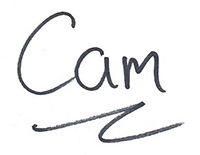
It’s a well-known phenomenon that an author of a runaway bestseller will be found to be disappointing in all future books.
This might even be true.
I went into the reading of Andy Weir’s Hail Mary with what I thought was an open mind, after thoroughly enjoying The Martian, his monster best-seller turned hit movie featuring Matt Damon.
And the book was just as thoroughly enjoyable, viewed overall. If you like your science fiction super hard (that is, full of actual science), you’ll like Hail Mary. There’s math, physics, and calculations to keep you entertained.
And the concept of the book is interesting and kept me reading to the end just to find out if I’d guessed wrong, or not.
And that’s where things fell apart, for me. I’ll try to explain this without spoilers.
Don’t get me wrong. I did like the book. Following the development of a new and unique language was fascinating. What follows is probably me being picky, because as an author, I would have made different choices.
To begin, the book went on for about five chapters longer than it should have. There was a major victory for the two primary characters at the end of the second act, that should have signaled their heading off for the end of the story…but then even more troubles hit them. And then, even more and different troubles. It was too much, too late.
I can understand from a science perspective that the troubles were necessary and logical, and the science in the story would have been weaker without them. But from a pure story/character perspective, the newly developing troubles should have been given a paragraph or two, and the story sent into the final act as quickly as possible. Instead, we got more experiments and trials until the current set of troubles were resolved.
The resolution of these story problems did set up the awkward end act, so let me get to that.
There is a major reversal of the plot in the final act that happened purely because of the belated troubles only a few chapters earlier. It set up the ending of the book in a way I had not anticipated. And that could be viewed as both good and bad. Surprising the reader is usually a good thing. Except that the entire book set the reader up to look forward to a major story and character payoff…and that didn’t happen.
**SPOILER ALERT
The whole book set the reader up to look forward to the main character returning to Earth, with the information needed to save the entire human race. After being treated abyssmally by the team of people who sent him into space in the first place, I was looking forward to his triumphant return…and that was taken away by the major twist at the end.
END OF SPOILER ALERT**
Breaking promises to readers (even just implied promises) is a betrayal of trust that can completely ruin a story. It ruined the ending of this story, alas. But if you love science processes in your books, then the bulk of the book will make up for the letdown at the end.
There were other, minor issues, including a main character that was just a bit too talented and amazing, and a bit too gung-ho and relentless, for a man who had let himself languish as a high-school science teacher for twenty years when his first career had come off the rails. But that could be explained away by the dire circumstances.
And the character’s inability to swear even once during high stress moments was twee — perhaps Weir was overcompensating for the opening of The Martian?
I would give this book a three and three-quarter stars rating. It’s entertaining, at least. Pure science lovers would rate it higher, but I’m a bit more demanding about my characters and stories.
How did you find the book?
